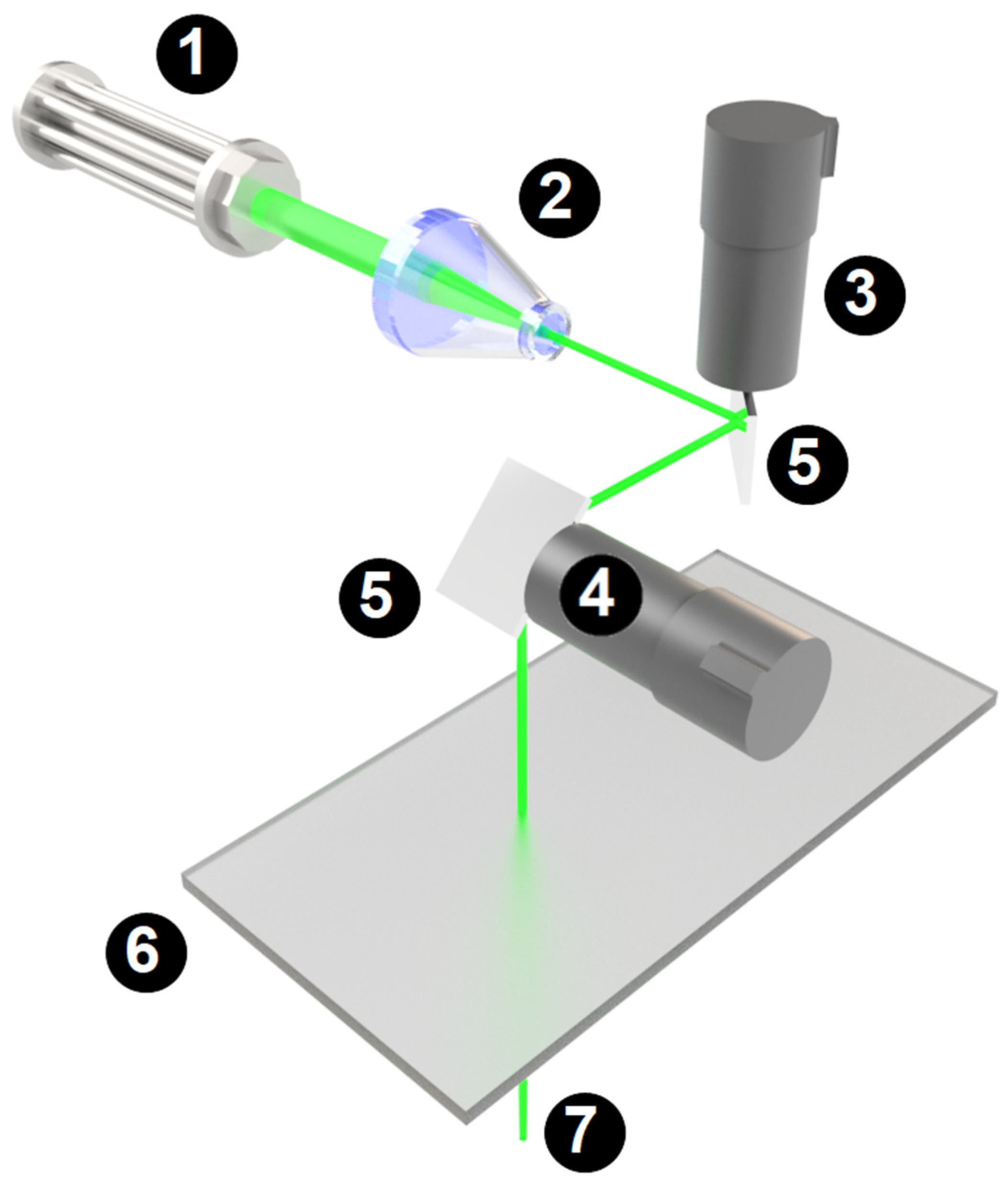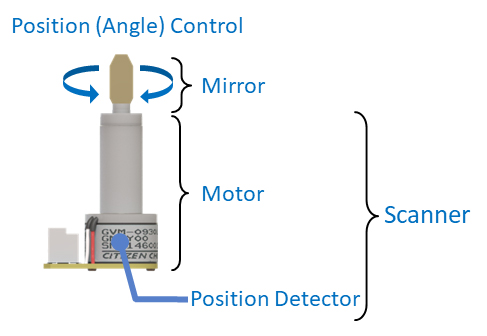Trick Applications of a Galvanometer Scanner in Different Scientific Research Study Area
Galvanometer scanners have come to be integral to different clinical research study areas, providing boosted precision in applications varying from biomedical imaging to environmental tracking. Their capacity to help with high-resolution imaging strategies, such as confocal microscopy, plays a critical duty in advancing our understanding of mobile structures. In product handling, these devices boost the precision of laser cutting and welding. As we check out the complex applications of galvanometer scanners, it becomes apparent that their influence expands far past mere technological capabilities, raising inquiries regarding their future possibility in arising research study locations.
Biomedical Imaging

In confocal microscopy, galvanometer scanners facilitate the acquisition of photos with boosted resolution and contrast, allowing scientists to visualize cellular parts in vivo. The ability to quickly capture multiple focal planes improves the three-dimensional reconstruction of cells, providing essential understandings right into their style and function.

Moreover, the quick scanning capabilities of galvanometer systems add to developments in vibrant imaging applications, such as checking cellular reactions to stimuli. For this reason, galvanometer scanners are crucial tools in the area of biomedical imaging, advancing study and clinical diagnostics through their precision and effectiveness.
Product Handling
Accuracy in product processing is vital for achieving high-quality lead to various industrial applications (galvanometer scanner). Galvanometer scanners play an important role in boosting this accuracy by enabling exact and fast activity control throughout the processing of products such as ceramics, polymers, and steels. These tools help with techniques like laser welding, inscription, and cutting, which require finely-tuned changes to make certain ideal results
In laser cutting, as an example, galvanometer scanners allow for elaborate designs to be executed with high integrity, lowering waste and improving manufacturing performance. The quick movement capacities allow quick modifications in the laser beam course, which is vital for preserving regular cutting quality throughout differing material densities. Likewise, in laser welding applications, the accuracy used by galvanometer scanners makes certain strong joints with minimal thermal distortion, consequently boosting architectural stability.
Additionally, the versatility of galvanometer scanners to various laser types and wavelengths further broadens their energy in product handling. Their capability to operate in tandem with advanced software application for real-time surveillance and control adds an added layer of refinement, enabling suppliers to achieve exact specifications tailored to details applications. Thus, galvanometer scanners are vital ahead of time the capacities of material processing innovations.
Optical Characterization
In the realm of optical characterization, the role of galvanometer scanners ends up being increasingly considerable as they assist in the evaluation of numerous optical residential properties with high accuracy. These tools enable precise control of laser beam of lights, enabling scientists to systematically probe products at numerous angles and frequencies. This capability is vital for identifying the refractive index, absorption coefficient, and scattering residential properties of diverse materials.
Galvanometer scanners are especially effective in techniques such as optical coherence tomography (OCT) and laser-induced fluorescence (LIF), where fast scanning is vital. By attaining high-speed modulation of the laser setting, galvanometer scanners boost the temporal resolution of these approaches, leading to enhanced imaging and analysis. Furthermore, they make it possible for the expedition of complicated interactions in between light and matter, which is important for comprehending product behaviors under numerous conditions.
Additionally, the combination of galvanometer scanners with spectroscopic techniques expands their utility, permitting detailed spectral evaluation across a wide variety of wavelengths. This adaptability makes them important tools in areas such as products scientific research, biomedical research, and nanotechnology, where detailed optical characterization is paramount for advancing understanding and advancement.

Laser Micromachining
The introduction of laser micromachining has revolutionized producing procedures, making it possible for the creation of complex frameworks with unparalleled accuracy. This technique makes use of high-intensity laser beams to exactly remove product from a substrate, making it feasible to make micro-scale parts that are important in different markets. The application of galvanometer scanners in laser micromachining enhances the efficiency and precision of this procedure by allowing exact and rapid light beam positioning.
Galvanometer scanners facilitate the dynamic control of laser beams, enabling anonymous complicated patterns to be engraved or reduced with high fidelity. Their rapid action times and high-resolution capabilities permit the adjustment of laser pulses, which is crucial for attaining the wanted material residential properties and surface finishes. This modern technology is particularly helpful in industries such as electronics, where the miniaturization of components is essential for performance enhancement.
Furthermore, laser micromachining is progressively being utilized in the medical area for making precision tools and his explanation implants. The combination of laser technology and galvanometer scanning not only simplifies manufacturing process however additionally lowers waste and boosts general product use, making it a sustainable selection for modern manufacturing difficulties.
Ecological Surveillance
Environmental monitoring has actually become increasingly essential in assessing and handling the wellness of environments and urban atmospheres. The integration of galvanometer scanners in this area allows precise, quick, and reliable data collection, helping with better decision-making processes. These scanners are adept at directing laser light beams or sensors throughout numerous terrains, permitting high-resolution mapping of ecological specifications such as air quality, dirt make-up, and water pollution.
In air quality monitoring, galvanometer scanners can be used to assess particulate matter and gaseous toxins, supplying real-time data that notifies public health initiatives. For water quality evaluations, these scanners can assist in discovering contaminants and measuring physical parameters, consequently making sure conformity with ecological guidelines. In remote sensing applications, galvanometer scanners boost the capability of satellite and drone systems to record detailed pictures and information of vast locations, recognizing eco-friendly adjustments and anthropogenic effects.
The flexibility and precision of galvanometer scanners make them indispensable tools in ecological surveillance, contributing substantially to lasting development efforts and the protection of all-natural sources. As the demand for reliable ecological management grows, the duty of these advanced devices will certainly expand better.
Final Thought
In summary, galvanometer scanners serve as necessary tools throughout multiple clinical research study domain names. The convenience and efficiency of galvanometer scanners continue to drive innovations in these vital areas.
In laser welding applications, the accuracy supplied by galvanometer scanners makes certain strong joints with marginal thermal distortion, therefore boosting structural stability.
In addition, the versatility of galvanometer scanners to different laser kinds and wavelengths additionally widens their utility in material processing. navigate to these guys By achieving high-speed modulation of the laser setting, galvanometer scanners enhance the temporal resolution of these techniques, leading to improved imaging and evaluation. The application of galvanometer scanners in laser micromachining improves the performance and precision of this process by permitting quick and accurate beam of light positioning.
Galvanometer scanners help with the dynamic control of laser beam of lights, allowing complicated patterns to be engraved or cut with high integrity.